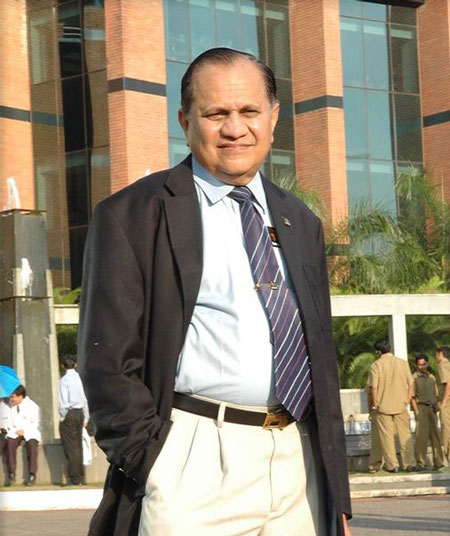September 16, 2025
Working with Dr Ramdas Pai for over forty years has profoundly reshaped my understanding of leadership. Textbooks may outline management principles, but they cannot teach the subtle art of leading with composure, humility, and vision. Dr Pai is the living embodiment of these qualities. He is composed without being distant, decisive without being overbearing, and a visionary who never loses the human touch that defines MAHE today.
A Defining Moment of Vision
I recall one afternoon in the early 1990s, after attaining the status of Deemed to be University for Manipal Institutions, the discussion regarding expanding the educational sphere of education and establishing the campuses at different locations, the tasks before us seemed enormous. As we set up campuses in Sikkim and Nepal, the sheer scale could have overwhelmed a lesser team. Yet, Dr Pai approached the challenge with quiet confidence. Instead of issuing orders, he asked questions—ones that encouraged us to think, to innovate, and to take ownership. Dr Pai once shared with me how he had listened intently to a faculty member's interest in anatomy—not dismissing it as a curiosity but nurturing it. Months later, the Manipal Museum of Anatomy opened, standing now as Manipal Museum of Anatomy and Pathology (MAP) as a testament to his belief in people first and process second.

Humane Philosophy in Healthcare
Dr Pai’s approach to healthcare is guided by the same humane philosophy. When Manipal Hospital in Bangalore began as a modest facility in the late 1991s, few could have envisioned the vast network it would one day become. Dr Pai’s vision was never expansion for its own sake, but expansion with care. Hospitals in Sikkim and Nepal soon followed, each upholding the core values of compassion, accessibility, and excellence. Initiatives such as free treatment programs, scholarships for faculty children and students, and fair policies for all staff—whether in housekeeping or senior academia—are not acts of charity. They reflect a philosophy that values human dignity as much as institutional growth.
Pioneering Borderless Education
Long before “credit transfer” and “twinning programs” became mainstream, Dr Pai launched initiatives allowing students to gain global exposure without compromising academic rigor. His belief was as simple as it was profound: education should be borderless, but quality must never be compromised. Today, MAHE’s international reputation is a reflection of this foresight, with campuses, collaborations, and programs consistently upholding global standards alongside local empathy.
Composure and Integrity Under Pressure
What strikes me most about Dr Pai is his composure under pressure. I have witnessed moments that would have broken most leaders: the intense scrutiny during Malaysian Medical Council recognition, and the 1993 deadlocks with state authorities over admissions, which threatened to affect the functioning of the University.. Through it all, Dr Pai remained unshaken—calm, principled, and unwavering. He demonstrated that challenges are not roadblocks but opportunities to prove our integrity and determination.
Living the Values of MAHE
At MAHE, integrity, transparency, teamwork, passion, and a human touch are not abstract ideals. They are visible every day—on campus in our students, in the meticulous care of nurses attending to patients, and in the spirited debates of faculty striving for academic excellence. Observing Dr Pai in action, one realizes that MAHE is not an institution shaped solely by strategy or policy. It is an extension of the man himself: his values, his foresight, and above all, his humanity.